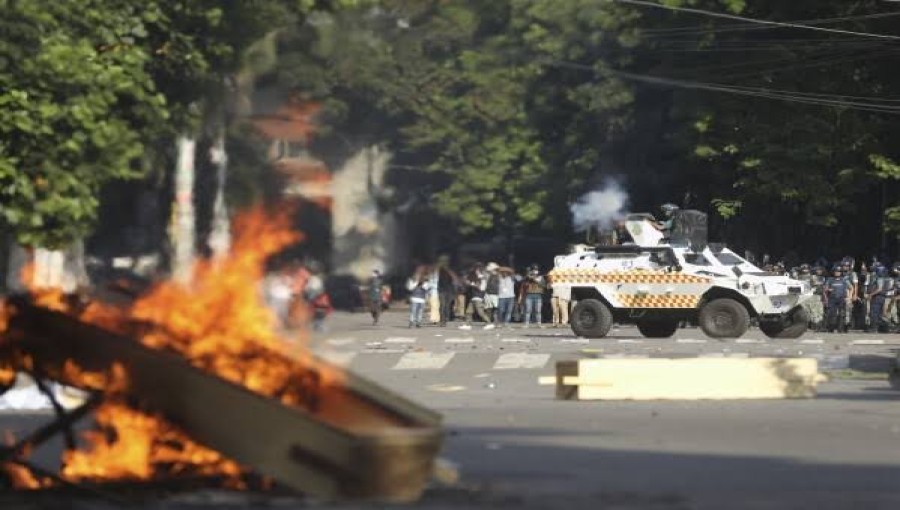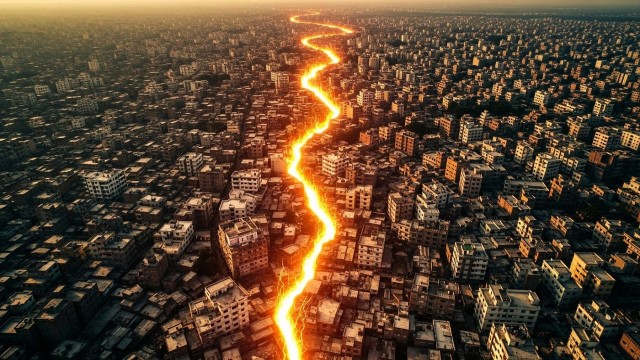Dhaka, 18 July (V7N) - Key media outlets throughout the world have responded to the recent student protests in Bangladesh that have attracted attention and concern from around the world. Along with in-depth reporting from Reuters, Anadolu Agency, and Al Jazeera, this topic looks at the responses from India, the United Nations, the European Union, and the United States. These reactions highlight how the protests affect Bangladeshi human rights, democratic ideals, and regional stability.
India's Response:
The Indian High Commission in Bangladesh has expressed concern over escalating student protests, issuing advisories urging caution among Indian nationals, particularly students, to ensure their safety amidst the unrest. India's proactive stance underscores its commitment to regional stability and close diplomatic ties with Bangladesh. Diplomatic efforts likely include engagement with Bangladeshi authorities to promote peaceful dialogue and uphold democratic values.
United Nations (UN) Response:
The United Nations has voiced deep concern over the student protests in Bangladesh, emphasizing the right to peaceful assembly and freedom of expression. UN spokesperson Stephen Dujarric has urged Bangladeshi authorities to protect demonstrators from violence, reflecting the UN's global advocacy for human rights and peaceful conflict resolution.
European Union (EU) Response:
The European Union has called for a swift and peaceful resolution to the crisis in Bangladesh, emphasizing democratic principles and human rights. Outgoing EU Ambassador Charles Whiteley highlighted the EU's support for dialogue and reconciliation, leveraging diplomatic channels to engage with Bangladeshi stakeholders and advocate for de-escalation.
US Embassy Response:
The US Embassy in Dhaka has issued travel warnings and temporarily closed to ensure the safety of US citizens amidst ongoing protests. The embassy's actions reflect a commitment to supporting democratic values and human rights globally, including the right to peaceful protest, while monitoring the situation closely through diplomatic channels.
Reuters Coverage:
Reuters has extensively covered the student protests in Bangladesh, detailing government responses and international reactions. Reports underscore the protests' impact on governance and civil rights, highlighting concerns raised by the UN and global stakeholders about Bangladesh's stability and human rights record.
Anadolu Agency Coverage:
Anadolu Agency's coverage has focused on the disruptions caused by student protests in Bangladesh, emphasizing demands for reforms and the government's response. The agency's reports provide insights into the motivations of protesters and the socio-political context driving demonstrations.
Al Jazeera Coverage:
Al Jazeera's comprehensive reporting on Bangladesh's student protests has highlighted grievances and demands for reform within the government's job quota system. The news outlet's coverage includes interviews with key stakeholders and analysis of the protests' implications for regional stability and governance.
International responses and media coverage of Bangladesh's student protests underscore global concerns over human rights, democratic governance, and regional stability. Each entity and news outlet has contributed to shaping international understanding of the crisis, emphasizing the need for peaceful dialogue and respect for fundamental freedoms amidst ongoing tensions in Bangladesh.
END//SMA/AJ/































Comment: